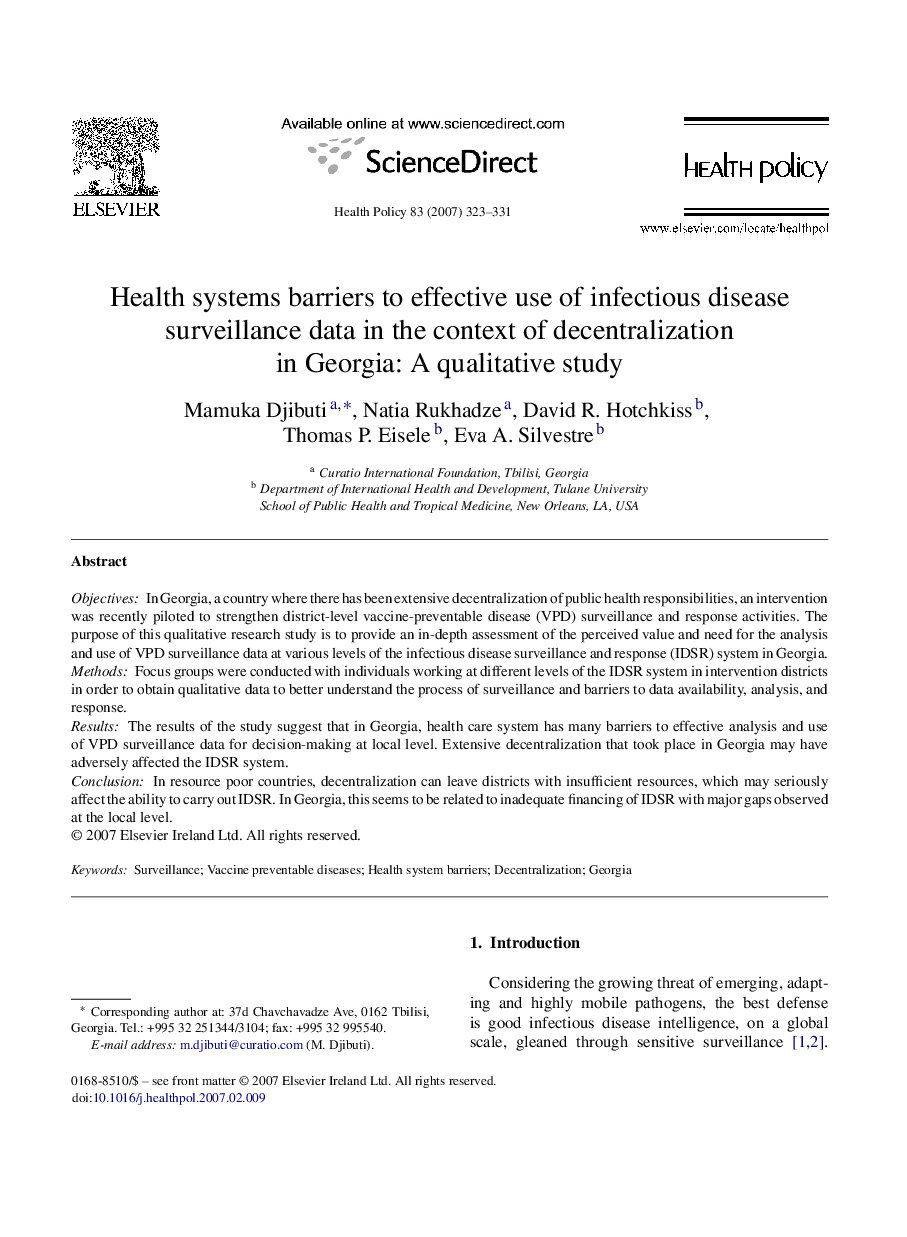| Article ID | Journal | Published Year | Pages | File Type |
|---|---|---|---|---|
| 4198955 | Health Policy | 2007 | 9 Pages |
ObjectivesIn Georgia, a country where there has been extensive decentralization of public health responsibilities, an intervention was recently piloted to strengthen district-level vaccine-preventable disease (VPD) surveillance and response activities. The purpose of this qualitative research study is to provide an in-depth assessment of the perceived value and need for the analysis and use of VPD surveillance data at various levels of the infectious disease surveillance and response (IDSR) system in Georgia.MethodsFocus groups were conducted with individuals working at different levels of the IDSR system in intervention districts in order to obtain qualitative data to better understand the process of surveillance and barriers to data availability, analysis, and response.ResultsThe results of the study suggest that in Georgia, health care system has many barriers to effective analysis and use of VPD surveillance data for decision-making at local level. Extensive decentralization that took place in Georgia may have adversely affected the IDSR system.ConclusionIn resource poor countries, decentralization can leave districts with insufficient resources, which may seriously affect the ability to carry out IDSR. In Georgia, this seems to be related to inadequate financing of IDSR with major gaps observed at the local level.
